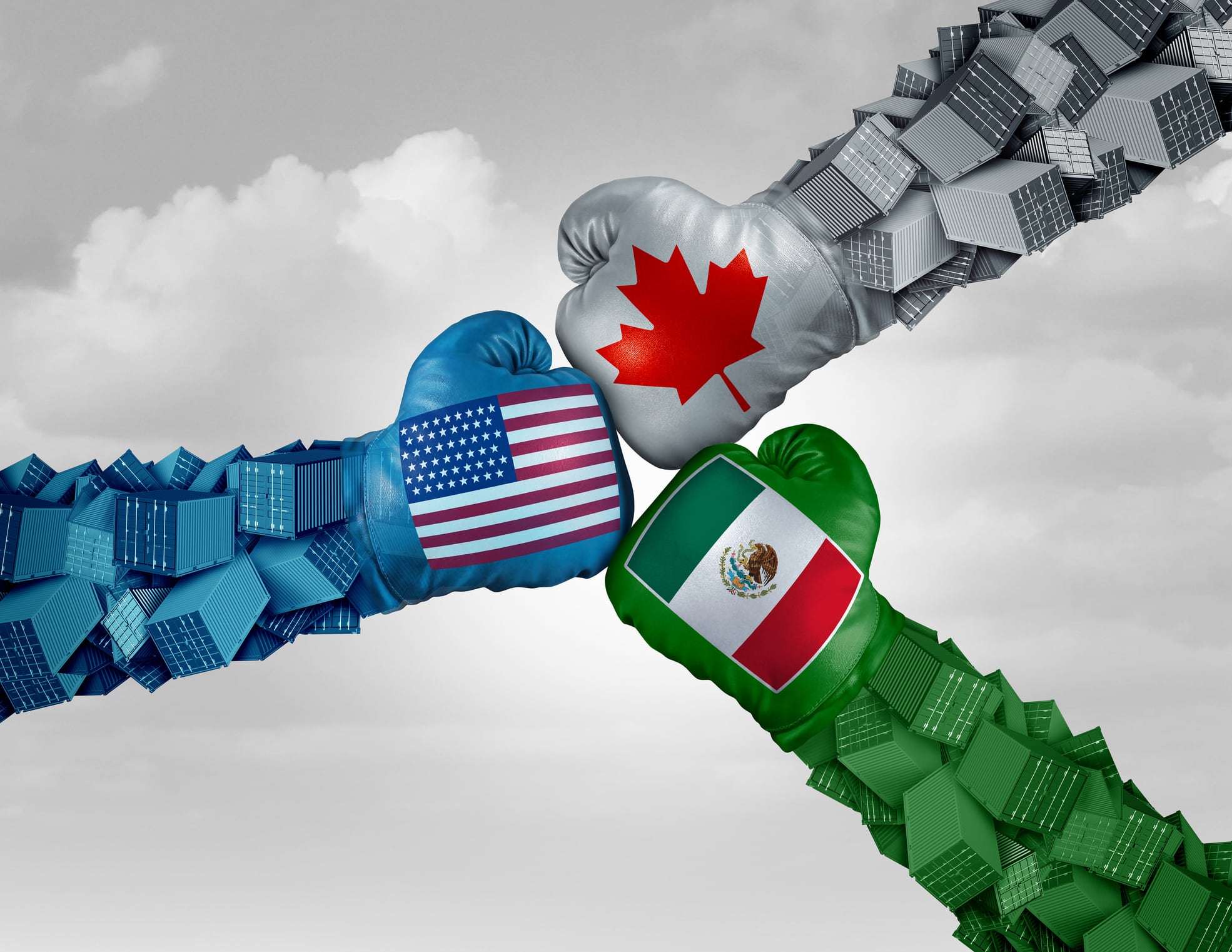A bill that could enshrine in law Canada’s protectionist agriculture policies is moving swiftly through parliament as talks on renewing the terms of the USMCA trade deal are set to ramp up in the coming months.
Bill C-202 would amend Canada’s foreign affairs, trade and development act to prevent ministers from negotiating away the system’s stringent import controls – specifically, to raise tariff rate quotas for dairy products, poultry or eggs, or to lower tariffs on foreign goods that exceed set import quotas.
The bill – which was tabled by the leader of Bloc Québécois, a Quebec sovereigntist party – was supported unanimously by all MPs in the House of Commons in a U-turn on prime minister Mark Carney’s comments that legislation ‘is not necessary’ to protect Canada’s supply management system. The bill is now up for a third reading in the Senate.
Pierre J. Dalphond, senator from Quebec who moved the second reading of the bill last week, commented: “By adopting the motion on Bill C-202 (…), the Prime Minister, the cabinet and the leaders of the opposition parties wanted to send a clear message to our American neighbours. In other words, they spoke with one voice. In this context, I urge the Senate to adopt Bill C-202 in a timely way, as the matter has some urgency.”
He added that delaying the bill’s passage would ‘send a contrary message and will weaken our position during the tough negotiations currently under way with our neighbours’.
“With Bill C-202, and irrespective of our individual policy views on which reasonable opinions may differ, we as senators have an opportunity to reaffirm our relationship of democratic deference to the other place and our united support to Canadians. To do otherwise would convey a message of division to the American administration and also suggest to Canadians that the personal views of unelected senators should prevail under any circumstances, regardless of the cost to the country.”
What’s Canada's supply management system?
This is an agricultural policy framework set up in the 1970s to act as a buffer for price and supply volatility. It’s designed to regulate domestic production of essential foods like dairy, eggs and poultry to provide stable supply to consumers and a fair farm income to producers by limiting the import of goods subject to the policy through tariff rate quotas (TRQs).
TRQs can vary by product and trade deal. For dairy, tariff rates vary between 200% and more than 300%; while for poultry, rates can reach 289% and between 150% and 164% for eggs.
Canada’s supply management system is based on three pillars:
- Production control: prevent surpluses and shortages that can cause price fluctuations by setting production quotas;
- Pricing control: guarantee revenues for producers by setting a minimum farm gate price; and
- Import control: set limits on imported goods part of the supply management system to avoid exposing farmers to price fluctuations or impact their production quotas.
Bill C-202 is designed to bolster the third pillar by preventing concessions on the import of dairy, poultry and eggs during trade negotiations.
It is identical to Bill C-282, which stalled at the report stage in the Senate but received the backing of the House, with 262 of the 313 MPs who participated, including the leaders of the Liberal Party of Canada, the Conservative Party of Canada, the New Democratic Party and the Green Party, voting in favor.
C-282 and the current C-202 were both introduced by Bloc Québécois, but cross-party support signals its importance across the wider political spectrum.
Still: Canada’s supply management policy is crucial for Quebec’s ag economy, which generates 36% of farm revenue from supply management receipts. The region is also the largest dairy-producer in the country, with more than 4,400 of the nation’s 9000+ dairy farms based in Quebec.
Dairy Farmers of Canada claim that up to 18% of some dairy product quotas are open to external markets, which could jeopardize the system in the long run.
US’ beef with Canadian dairy TRQs
USMCA, the trade deal that mandates zero tariffs between Canada, the US and Mexico, is up for reviewal this year.
The US finds that Canada slaps US imports above quota levels with ‘prohibitively high tariffs’. According to the Trump Administration’s National Trade Estimate Report on Foreign Trade Barriers, Canada’s supply management system ‘severely limits the ability of US producers to increase exports to Canada above TRQ levels and increases the prices that Canadians pay for dairy and poultry products’.
Under the terms of the 2020 USMCA, US dairy producers received improved market access opportunities through new TRQs, but the two countries have been at loggerheads over the percentage of each TRQ reserved for Canadian processors.
With the US ‘committed to securing the full benefit of the market access’, Canada’s supply management system is bound to come under pressure in future trade talks.
Dairy contributes CA$28bn (US$20.6bn) to Canada’s GDP and generates CA$9bn (US$6.64bn) in tax revenue annually.
It’s the second largest market for US dairy exports with 221,883 metric tons of product at a value of US$1.14bn shipped across the border in 2024. Over the past decade, US dairy exports to Canada have grown 82%, according to USDA data.

